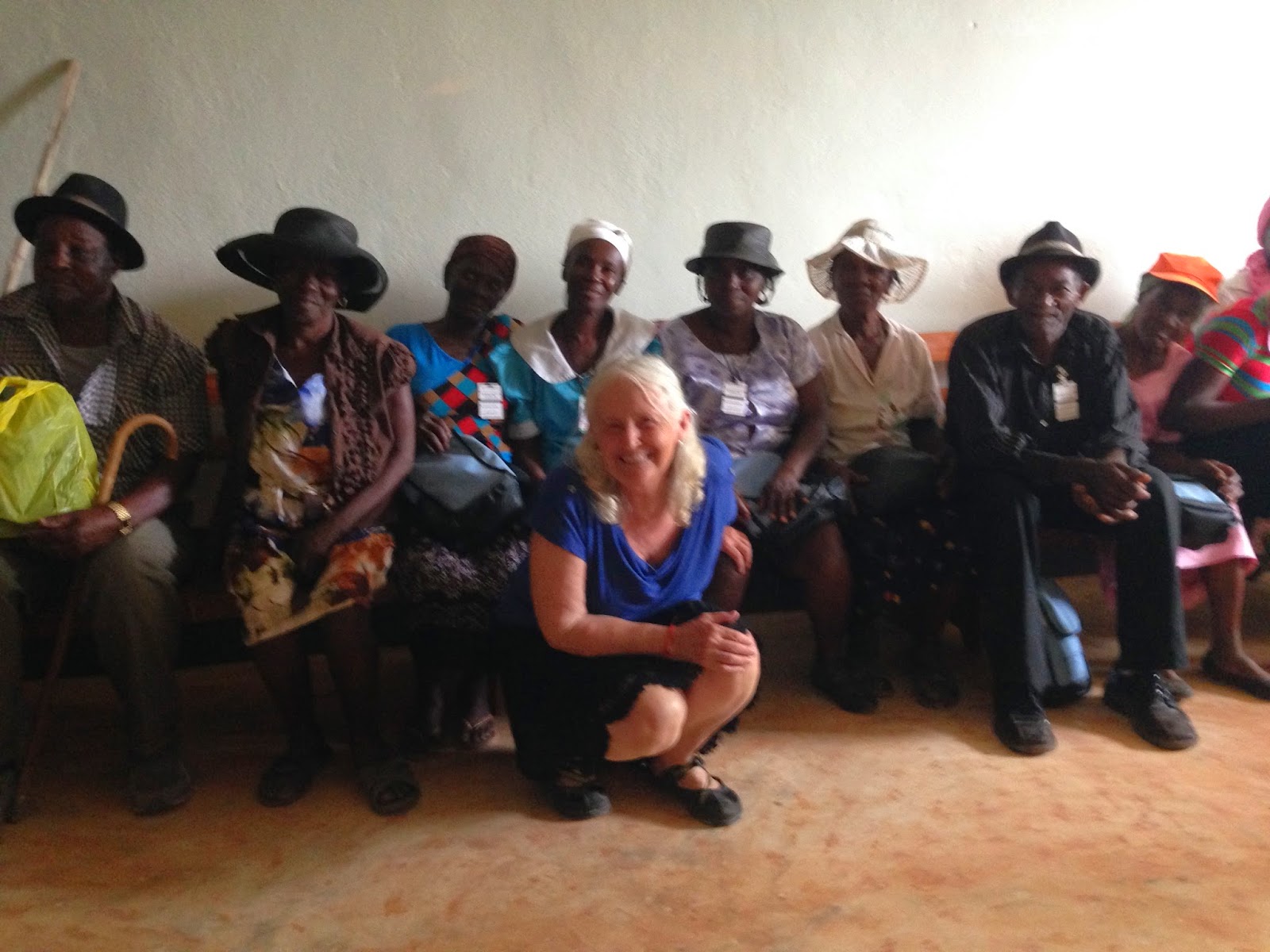I returned in June of 2014 to LaGonave, Haiti and tried my hardest to begin a process of establishing mobile prenatal clinics in remote villages. Four villages were chosen by The LaGonave Partnership; a group of US churches who support and maintain a relationship with a village on LaGonave. All the villages are connected by the Episcopal Church that appears to act as the governing body. Each village has a small church with a lay leader, a school, a school lunch program and an adult literacy program. All have a community health worker who lives in the village and, in theory, provides day to day health care. The villages are 1-3 hours from a hospital, over very poor roads. in the event of a matronal emergency, it is unlikely the mother can reach care. It is uncertain that there is a means to get her to care or that mergence services will be able to care for her should she arrive in time.
 |
| Meeting with the midwives, akan santes and matrons to play the new mobile clinics |
The goal of the mobile clinics are the following;
1. To prevent, through education, screening and treatment, maternal and newborn problems leading to death and disability.
2. To allow families to build local economies without the additional burden of health care costs, orphaned children and the death of a mother.
3. To identify women who should have their babies in town, closer to emergency services.
4. To provide prenatal vitamin, safe birth kits and other medications as needed.
5. To support the collaboration of the the midwives, ajan santes, lay leaders and matrons.
6. To provide transport in the event of an emergency.
7. To provide safe waiting homes for women presenting with high risk pregnancies.
8. To provide life saving measures and medications to women in remote villages.

No comments:
Post a Comment